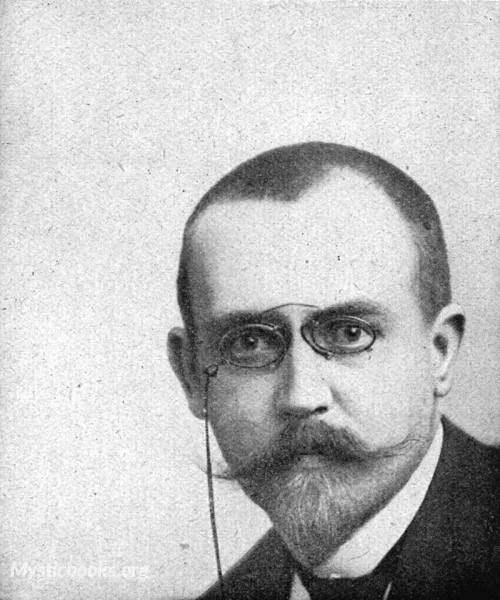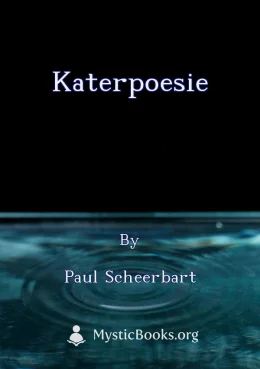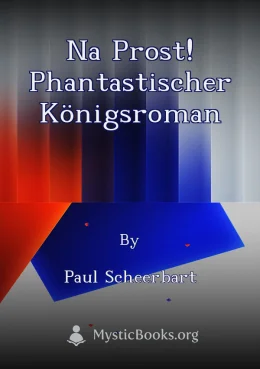
Timeline
Title
Country/Nationality
Paul Scheerbart
Step into the imaginative realm of Paul Scheerbart, a visionary German author and artist who pushed the boundaries of speculative fiction. With a keen focus on Scheerbart's life, principles, notable works, and lasting legacy, this essay delves into the fascinating world of a writer ahead of his time.
Who Was Paul Scheerbart?
Paul Scheerbart, born on January 8, 1863, in Danzig (present-day Gdańsk, Poland), was a multifaceted creative force. He was a prolific writer, architect, draftsman, and visionary whose works spanned various genres and mediums. Scheerbart's innovative ideas and unconventional thinking set him apart as an avant-garde figure of his era.
Principles and Vision:
At the core of Scheerbart's principles was his belief in the transformative power of art and the ability of imagination to reshape the world. He championed the concept of utopian architecture and emphasized the importance of incorporating beauty, light, and color into urban landscapes. His works often showcased a fusion of fantastical elements and forward-thinking ideas.
Famous For and Notable Works:
Scheerbart gained recognition for his pioneering works of speculative fiction, particularly in the realms of science fiction and utopian literature. His most famous novel, "Glass Architecture" (1914), envisioned a future where buildings would be constructed entirely of glass, embodying transparency, beauty, and the integration of nature and architecture. Other notable works include "The Gray Cloth" (1901) and "The Perpetual Motion Machine" (1910), both exploring imaginative and unconventional ideas.
Philosophy and Visionary Ideals:
Scheerbart's philosophy revolved around the belief in the transformative potential of art and the importance of transcending the limitations of the everyday world. He sought to inspire readers to embrace creativity, envision utopian futures, and challenge societal norms. His works often reflected a fascination with the possibilities of technology, the importance of natural elements, and the creation of harmonious living environments.
Legacy and Remembrance:
Paul Scheerbart passed away on October 15, 1915, in Berlin. Although his works received limited recognition during his lifetime, his ideas and contributions continue to influence subsequent generations of artists, architects, and writers. Scheerbart's visionary concepts of transparent architecture, his exploration of fantastical worlds, and his embrace of artistic experimentation have left an indelible mark on the realms of speculative fiction and utopian thought.
Interesting Facts about the Author:
- Scheerbart's works often blended art and literature, incorporating his own drawings and illustrations to complement his written ideas.
- He was a vocal advocate for women's rights and gender equality, advocating for their inclusion in all aspects of society, including architecture and art.
- Scheerbart's unique literary style often employed whimsical language and playful prose, capturing the imaginative essence of his stories.
Conclusion:
Paul Scheerbart was an avant-garde visionary whose innovative ideas and imaginative works continue to inspire and captivate readers to this day. Through his speculative fiction literature and architectural concepts, Scheerbart challenged societal conventions and pushed the boundaries of artistic expression. His legacy serves as a reminder of the transformative power of imagination, the importance of embracing creativity, and the enduring impact of visionary thinkers.
Books by Paul Scheerbart

Immer Mutig
Tauchen Sie ein in eine Welt grenzenloser Fantasie und furchtloser Erkundung mit "Immer Mutig" von Paul Scheerbart, einer fesselnden Sammlung von Texten, die den Geist des Abenteuers in uns allen entfacht. Begeben Sie sich auf eine Reise durch den au...

Katerpoesie
"Katerpoesie" is a collection of humorous and satirical poems by Paul Scheerbart. Known for his playful and unconventional style, Scheerbart's poems explore themes of art, language, and society. With a mix of wit and whimsy, Scheerbart's work challen...

Na Prost! Phantastischer Königsroman
„Na Prost! Phantastischer Königsroman“ von Paul Scheerbart ist eine satirische und fantasievolle Geschichte, die sich mit den absurden Seiten des Königseins auseinandersetzt. Der Roman zeichnet ein groteskes Bild von einem imaginären Königreich, in d...

Kaiser von Utopia
The Emperor of Utopia, tired of his duties as both emperor and head of the church, decides to take a year-long vacation. To his surprise, he is invited to the town of Schilda to exchange roles with the mayor for a year.